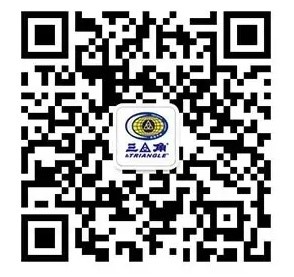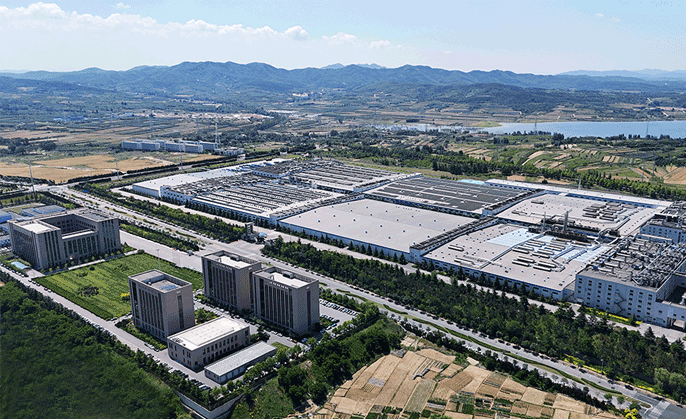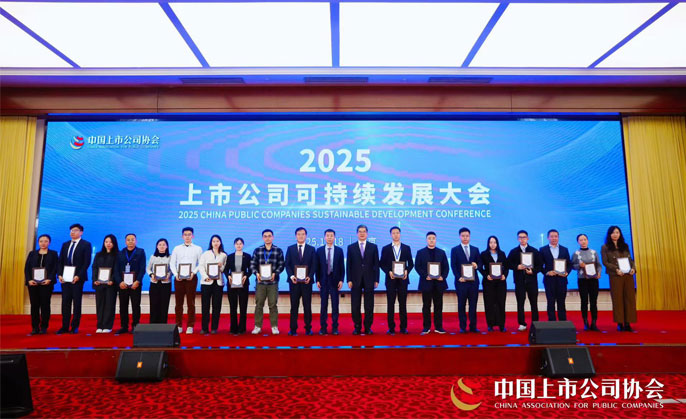
“It is not so easy to do independent brand company now, yes?”
“Yeh, we have been seeking a joint venture, foreign capital holding is also ok, but Chinese tire industry has been in chaos. It’s too difficult to do business by ourselves.”
A topic unintentionally mentioned by the journalist provoked resonance by the president of a key domestic tire enterprise.
They reached a consus on a fact that the “Kumbo Incidents” is solely one of epitomes of chaos in domestic tire industry. Chairman of tire association under Chinese rubber industry association, president of Triangle Group, Mr. Ding Yuhua, convened the conference with the idea of “model transformation, structure adjustment”. Taking the advantage of “Kumbo Incidents”, he appealed tire enterprises to weight value on product quality, and government departments responsible to issue relevant regulations and laws to guide and promote the industry towards a path with healthy and sustainable development.
Quoted from the president of a tire enterprise, it mirrors chaos in China tire industry—productivity surplus and orderless competition.
According to the latest statistic data from tire association under Chinese rubber association, there are more than 360 tire companies with different sizes in China, of which more than 290 are of small and mediun sizes and of 65% producing low and medium-end products. Moreover, to pursue so-called political achievements and GDP, some local governments have been indulged in “attracting investments” to build new factories, or encourage companies to blindly enlarge low and medium products capacity.
The huge potential of Chinese market is also attracting eyes of transnational corporations.
However, some people may have sensed such a situation—when foreign companies steped into Chinese market at the beginning, their used to high-end segment market but with deeper learning of Chinese market, they began to transfered their medium and even low-end productionlines into China. And such situation finally caused that none of a transnational corporation had set up its research center and tire test field in China, not mention that none of the core technology or high-end products had been transfered into China.
In the symposium, one participate shared his own experience in an African country—he could remove a piece of rubber easily from one tire imported from a Chinese company only with a thin iron wire. “It is really a shame for our home country to export such low quality tires.”
According to a participant who declined to reveal his name, “extremely serious”can be used to describe current domestic tire industry. He said, currently, brands of transnational corporations are far more of infuence than their Chinese counterparts. If orderless competition continues, transnational corporations are likely to grab the huge profits.
With almost 30 years experience in tire industry, Mr Ding Yuhua expressed his concerns over domestic tire industry—with gradually serious substantial trend, quantity only-oriented development, simple replication in production capacity and obsession with orderless price battle, a second “Kumbo Incident” will inevitably come out. “Kumbo Incident” is a victim of vicious competiton in tire industry, also a mirror of difficulies encounting by tire companies.
Chinese Tire Industry Supervision under “Vacuum” Condition
According to some sources, it is not an single case for low-end product to be smoothly released to domestic market.
The root cause for surplus production capacity, orderless competition in tire industry lies with the too low threshold and too loose entry standards. Currently, approval of a new enterprise by local governments only according to its size and production capacity; as for requirements on technology and environmental protection, it lags far behind compared with that of advanced contries
Meanwhile, many people noticed that some standards and important parameter trial methods of domestic tire industry were made even 20 years ago. With rapid development of market and progress in technology, these standares and methods have already been out of date. Currently, standards of some enterpries are ever far strict then national ones.
Even if the “CCC” certificate implemented by central government, it has already been used for 10 years And it has been out of date—low safety standards, no targets on environmental protection.
During the symposium, participants realized that what have bothered them were still those “old problmes” which had been existed for many years—chaotic development, surplus productivity, out-dated industry standards and abnormal high price of raw materials.
As for deep cause of above problems, they know it well: behind boom of domestic tire industry, there is “vacuum” in terms of supervision.
Since the Chemical Ministry was removed, there is mere supervision on tire industry” one participate told journalist.
According to him, during the reform of state council in 1998, government functions of Chemical Ministry and China Sinopec and China Petroleum were combined and National Petroleum and Chemical Bureau was set up. In 2001, the bureau was removed. In the beginning, Chemical Ministry was in charge of dometic tire industry--first under the management of Petro Industry Bureau and then belonged to China rubber industry association under China Petroleum Association.
With such changes, the department reponsible for tire industry have became a low level department with little management authority. Thus, no government department can directly represent or impose strict supervision on tire industry . And the situation has lasted for a dozen years.
According to an auto website, most of the surveyed blamed “Kumbo Incidents” for management failure of government departments--51% thought the “Kumbo Incidents” was due to loose enforcement by administration departments, 22% believed far enough supervision in market entry was the main cause, while other 10% said it was resulted from the lack of industrial standard.
As is known to all, industry supervision is a systematic project. Besides industry regulations and entry standards, market supervision and management are needed. Howerver, without government and policy supervision, domestic tire industry is almost in the status of “no government”, no mention of self-displine by enterprises with profit-seeking as their goals.
“Yeh, we have been seeking a joint venture, foreign capital holding is also ok, but Chinese tire industry has been in chaos. It’s too difficult to do business by ourselves.”
A topic unintentionally mentioned by the journalist provoked resonance by the president of a key domestic tire enterprise.
It is of some difficulty to comprehend above situation—a key tire enterprise, when encountering difficulties, would like to give up its shares holdings. However, it seems not rare a news in domestic tire industry. In a recent tire enterprises communication symposium held in coastal city Weihai, Shandong province, presidents from almost 10 tire enterprises all expressed their deep concerns over chaos of domestic tire industry and hardship of enterprises encountered.
They reached a consus on a fact that the “Kumbo Incidents” is solely one of epitomes of chaos in domestic tire industry. Chairman of tire association under Chinese rubber industry association, president of Triangle Group, Mr. Ding Yuhua, convened the conference with the idea of “model transformation, structure adjustment”. Taking the advantage of “Kumbo Incidents”, he appealed tire enterprises to weight value on product quality, and government departments responsible to issue relevant regulations and laws to guide and promote the industry towards a path with healthy and sustainable development.
“In China, Whoever can Make Tires”
Quoted from the president of a tire enterprise, it mirrors chaos in China tire industry—productivity surplus and orderless competition.
According to the latest statistic data from tire association under Chinese rubber association, there are more than 360 tire companies with different sizes in China, of which more than 290 are of small and mediun sizes and of 65% producing low and medium-end products. Moreover, to pursue so-called political achievements and GDP, some local governments have been indulged in “attracting investments” to build new factories, or encourage companies to blindly enlarge low and medium products capacity.
The huge potential of Chinese market is also attracting eyes of transnational corporations.
By now, global main transnational corporations all have set up manufacturing bases in China, with total production capacity accounting for nearly half of domestic tire industry. Production annual increasing rate of foreign capital tire enterprises is also higher than that of average rate of tire industry in China.
However, some people may have sensed such a situation—when foreign companies steped into Chinese market at the beginning, their used to high-end segment market but with deeper learning of Chinese market, they began to transfered their medium and even low-end productionlines into China. And such situation finally caused that none of a transnational corporation had set up its research center and tire test field in China, not mention that none of the core technology or high-end products had been transfered into China.
In the symposium, one participate shared his own experience in an African country—he could remove a piece of rubber easily from one tire imported from a Chinese company only with a thin iron wire. “It is really a shame for our home country to export such low quality tires.”
According to a participant who declined to reveal his name, “extremely serious”can be used to describe current domestic tire industry. He said, currently, brands of transnational corporations are far more of infuence than their Chinese counterparts. If orderless competition continues, transnational corporations are likely to grab the huge profits.
With almost 30 years experience in tire industry, Mr Ding Yuhua expressed his concerns over domestic tire industry—with gradually serious substantial trend, quantity only-oriented development, simple replication in production capacity and obsession with orderless price battle, a second “Kumbo Incident” will inevitably come out. “Kumbo Incident” is a victim of vicious competiton in tire industry, also a mirror of difficulies encounting by tire companies.
Chinese Tire Industry Supervision under “Vacuum” Condition
According to some sources, it is not an single case for low-end product to be smoothly released to domestic market.
The root cause for surplus production capacity, orderless competition in tire industry lies with the too low threshold and too loose entry standards. Currently, approval of a new enterprise by local governments only according to its size and production capacity; as for requirements on technology and environmental protection, it lags far behind compared with that of advanced contries
Meanwhile, many people noticed that some standards and important parameter trial methods of domestic tire industry were made even 20 years ago. With rapid development of market and progress in technology, these standares and methods have already been out of date. Currently, standards of some enterpries are ever far strict then national ones.
Even if the “CCC” certificate implemented by central government, it has already been used for 10 years And it has been out of date—low safety standards, no targets on environmental protection.
During the symposium, participants realized that what have bothered them were still those “old problmes” which had been existed for many years—chaotic development, surplus productivity, out-dated industry standards and abnormal high price of raw materials.
As for deep cause of above problems, they know it well: behind boom of domestic tire industry, there is “vacuum” in terms of supervision.
Since the Chemical Ministry was removed, there is mere supervision on tire industry” one participate told journalist.
According to him, during the reform of state council in 1998, government functions of Chemical Ministry and China Sinopec and China Petroleum were combined and National Petroleum and Chemical Bureau was set up. In 2001, the bureau was removed. In the beginning, Chemical Ministry was in charge of dometic tire industry--first under the management of Petro Industry Bureau and then belonged to China rubber industry association under China Petroleum Association.
With such changes, the department reponsible for tire industry have became a low level department with little management authority. Thus, no government department can directly represent or impose strict supervision on tire industry . And the situation has lasted for a dozen years.
According to an auto website, most of the surveyed blamed “Kumbo Incidents” for management failure of government departments--51% thought the “Kumbo Incidents” was due to loose enforcement by administration departments, 22% believed far enough supervision in market entry was the main cause, while other 10% said it was resulted from the lack of industrial standard.
As is known to all, industry supervision is a systematic project. Besides industry regulations and entry standards, market supervision and management are needed. Howerver, without government and policy supervision, domestic tire industry is almost in the status of “no government”, no mention of self-displine by enterprises with profit-seeking as their goals.
The “Kumbo Incidents” with no doubt will happen when an industry lose its standards and necessary supervision. , no mention of a sustainable development.
Share to



Revelant news
Product
Brand & Services
Join Us



Copyright © 2019 - 2020 Triangle Tyre Co., Ltd 沪ICP备14019152号-1  沪公网安备 31019002000242号 All rights reserved Powered by Yongsy
沪公网安备 31019002000242号 All rights reserved Powered by Yongsy




 DE
DE ES
ES FR
FR IT
IT US
US РФ
РФ 威路驰
威路驰 Diamondback
Diamondback










